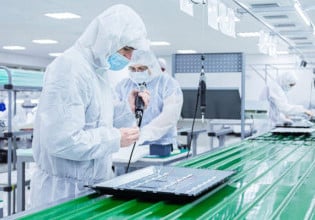Ceres Power Ltd. is the only fuel cell company in the UK government's new Energy Research Partnership (ERP), launched yesterday. Chancellor Gordon Brown set up the ERP so that private and public financing of energy research can work together to identify a coherent national energy policy. It is chaired by the government's Chief Scientist Sir David King and co-chaired by E.ON Chief Executive Paul Golby.
Ceres will work closely with key energy companies including BP, Shell, E.ON, ITI Energy, Scottish & Southern Electricity, BNFL, Alstom, Mitsui Babcock and National Grid, as well as public sector organizations including DEFRA, the DTI and The Carbon Trust, according to a statement issued by the company.
The inclusion of Ceres reflects government interest in microgeneration projects to produce energy in the home, rather than in power stations, according to the statement. This approach is up to twice as efficient, reducing valuable fossil fuel usage and carbon emissions, and simultaneously slashing energy bills for consumers.
Ceres is working with British Gas to develop microgeneration products that run off natural gas and other clean fuels. These produce hot water and heat like a conventional domestic boiler, but also create enough electricity to run numerous home appliances. Such ‘combined heat and power (CHP)' systems extract maximum energy from fuel, and directly address the UK's current energy debate.
Ceres Chief Executive Peter Bance, who will represent Ceres in the ERP, said: "We are delighted that Ceres' leading status in commercializing fuel cell technology has led to our inclusion in this important partnership. We see it as a clear indication that fuel cell products running on natural gas are positioned to make an early and exciting contribution to energy and environmental savings and are seen as a major solution by both government and industry."
The key objectives of the ERP are to identify policy drivers, regulatory changes, emerging technologies and new R&D areas that could result in material contributions to the UK's energy security, carbon emissions targets and sustainable economic growth.
In April, the government is expected to launch its "Microgeneration Strategy" identifying home microgeneration as a major technology suited to mass-market sales.






